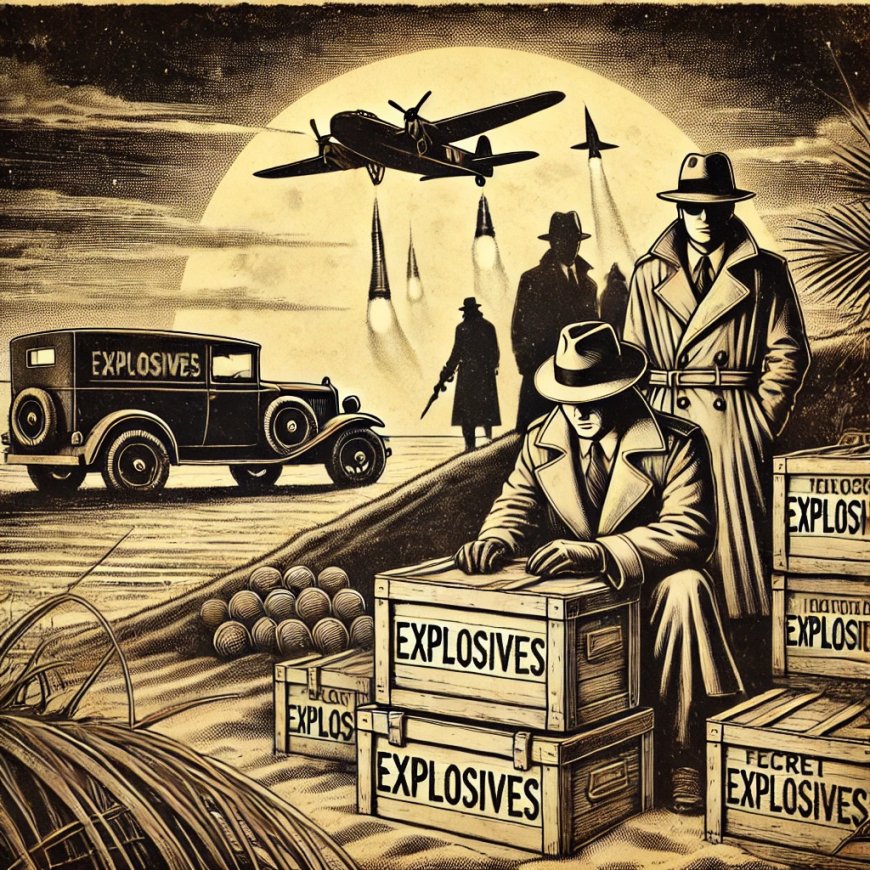Operation Pastorius: The German Saboteurs Who Tried to Destroy America and Failed in Days
In 1942, Nazi Germany sent saboteurs to America in a secret mission called Operation Pastorius. Within days, betrayal and blunders turned it into one of WWII’s shortest and strangest spy missions.

A Mission Doomed from the Start
World War II was raging across the globe in 1942. Hitler’s armies dominated much of Europe, and the United States had just entered the war after Pearl Harbor. The Nazis wanted to strike fear into the heart of America — and they came up with a daring plan: send German saboteurs onto American soil to blow up factories, railroads, and even landmarks.
This secret mission was called Operation Pastorius.
On paper, it sounded like something out of a spy thriller. In reality, it became one of the most short-lived, bungled, and almost comical spy missions in history.
The Plan: Sabotage America from Within
The Nazis selected eight men for the mission. Most were German-Americans who had lived in the US before, spoke fluent English, and could blend in. Their orders:
-
Destroy aluminum plants and power stations.
-
Attack railroads and factories critical to the war effort.
-
Spread chaos and fear among civilians.
The saboteurs were trained in explosives and stealth. Then, in June 1942, they boarded submarines and headed for American shores.
Landing on American Beaches
On the night of June 13, 1942, the first team of saboteurs landed on Long Island, New York, near Amagansett. Dressed as German sailors, they buried their uniforms and explosives in the sand and changed into civilian clothes.
Just days later, the second team landed near Ponte Vedra Beach, Florida. Their mission was the same: blend in, regroup, and begin their acts of sabotage.
It might have been the perfect plan — except for one little problem.
The Betrayal That Changed Everything
One of the saboteurs, George John Dasch, had other ideas. Almost immediately after landing, he decided he wanted no part of the mission. Instead, he walked into an FBI office in Washington, D.C., and spilled everything.
Dasch handed over cash, codebooks, and full details of the operation. The FBI couldn’t believe their luck. Within weeks, every single saboteur was rounded up before they even had the chance to strike a single target.
A Comedy of Errors
Even without Dasch’s betrayal, Operation Pastorius probably wouldn’t have succeeded. The saboteurs made mistake after mistake:
-
They landed in broad daylight on crowded beaches.
-
Locals noticed them immediately and reported strange activity.
-
Some saboteurs spent their time in the US drinking and visiting women instead of planning sabotage.
-
The FBI, initially clueless, quickly pieced the story together thanks to Dasch’s cooperation.
The mission collapsed almost as soon as it began.
The Trial: Swift and Secret
The saboteurs were tried in secret by a military tribunal. President Franklin D. Roosevelt himself ordered that they be executed as quickly as possible. Six of the eight were sent to the electric chair on August 8, 1942.
Only Dasch and another saboteur, Ernst Burger (who also cooperated), were spared. Instead of execution, they were imprisoned — and later deported back to Germany after the war. Ironically, they were treated as traitors by their own countrymen.
Headlines Across America
When the news broke, Americans were stunned. Nazi saboteurs had landed on US soil! At first, newspapers painted the FBI as heroes for cracking the case. But as more details emerged, people realized the truth: the mission was doomed from within.
The press nicknamed the whole fiasco “The Saboteur Scare That Lasted a Week.”
Weird Facts About Operation Pastorius
-
One saboteur carried $84,000 in cash — a huge fortune at the time — which the FBI gleefully seized.
-
The mission was named after Francis Daniel Pastorius, a German who founded the first German settlement in America. Ironically, it became synonymous with failure.
-
Roosevelt wanted the saboteurs executed “before breakfast.” They were electrocuted within two months of landing.
-
Dasch later wrote a book about his betrayal, claiming he wanted to save lives. He died poor and forgotten in Germany in 1992.
-
The story inspired countless spy novels, TV shows, and even conspiracy theories about secret Nazi operations in the US.
The Strange Legacy
Operation Pastorius remains one of the strangest espionage stories of World War II. The Nazis thought they were unleashing chaos in America, but instead, their mission collapsed in record time. What was meant to be a terrifying campaign of sabotage turned into a darkly comedic tale of betrayal, blunders, and blubbering spies.
It also showed the FBI’s willingness to spin a near-disaster into a propaganda victory — turning incompetence into “heroism.”
Final Thought
The story of Operation Pastorius proves that not every spy mission is James Bond material. Sometimes, even the most carefully planned operations fall apart because of human error, cowardice, or just plain bad luck.
And in 1942, instead of bombs and sabotage, America got a bizarre history lesson: never send saboteurs who are more interested in switching sides than blowing things up.
What's Your Reaction?








































